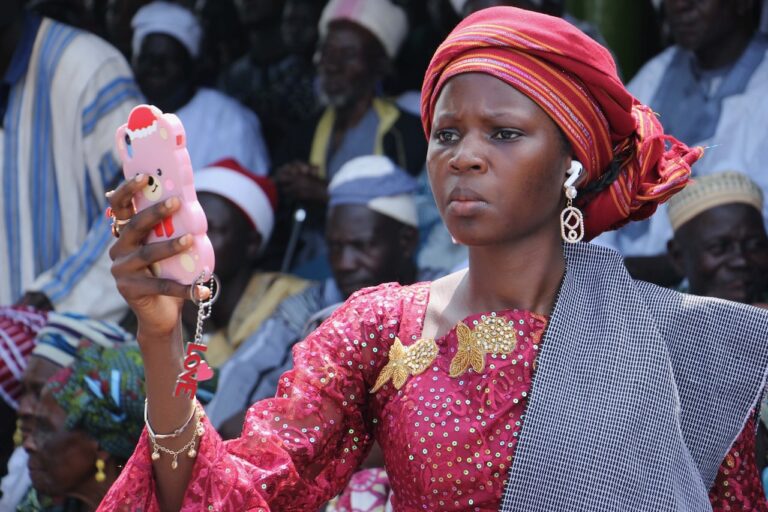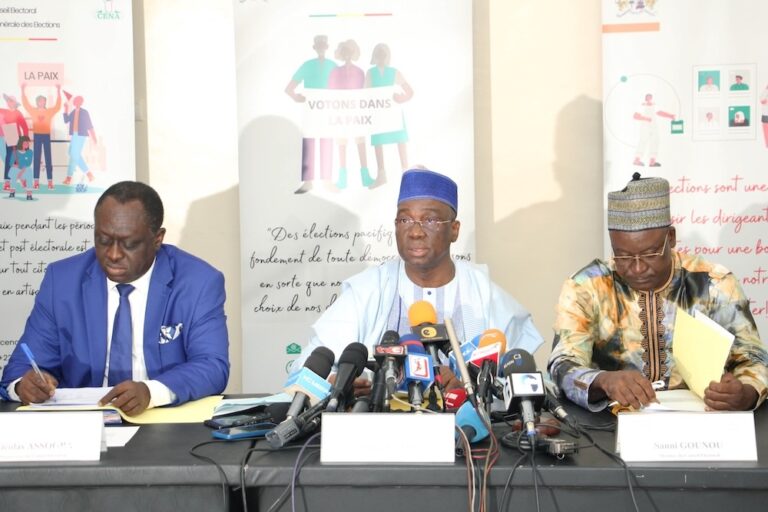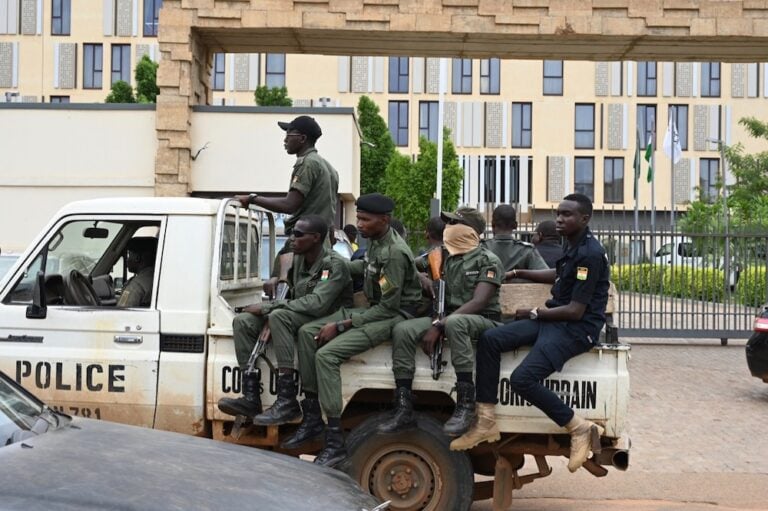Throughout December 2011, Benin's state-run media regulatory agency summoned more than a dozen newspapers to public hearings and handed them sanctions ranging from a public apology to indefinite suspension, according to news reports.
(CPJ/IFEX) – June 19, 2012 – Throughout December 2011, HAAC, Benin’s state-run media regulatory agency, summoned more than a dozen newspapers to public hearings and handed them sanctions ranging from a public apology to indefinite suspension, according to news reports. HAAC’s president is appointed by Benin’s head of state, and two-thirds of the agency’s members are appointed by the government, CPJ research shows.
The hearings followed complaints by officials and prominent public figures over critical articles the newspapers had published, according to local journalists and news reports.
On December 6, 2011, HAAC sanctioned at least nine newspapers. The circulation of the daily L’enquêteur was banned, and its editor, Boris Tougan, forbidden from practicing journalism, after Reckya Madougou, Benin’s microfinance and labor minister, filed a complaint over articles accusing her of involvement in drug trafficking, according to news reports. The court also suspended the weekly Le Journal du Peuple for three months based on a complaint by Osséni Moukaram, the mayor of Benin’s capital city, over a column that called him a “megalomaniac,” HAAC reported on its website.
The private biweekly Le Béninois Libéré was suspended for a month over articles that were critical of Prime Minister Pascal Irénée Koupaki, as well as a November 2011 story on the seizure of narcotics aboard a Gabonese presidential plane, according to news reports. In a statement, the government called the allegations “false and defamatory” and pledged to lodge a complaint against the paper for defamation.
HAAC suspended the daily Le Pays Emergent for a month over a column critical of businessman Sébastien Ajavon, according to news reports, and the daily L’Indépendant was suspended for two weeks for publishing stories that were critical of Koupaki.


